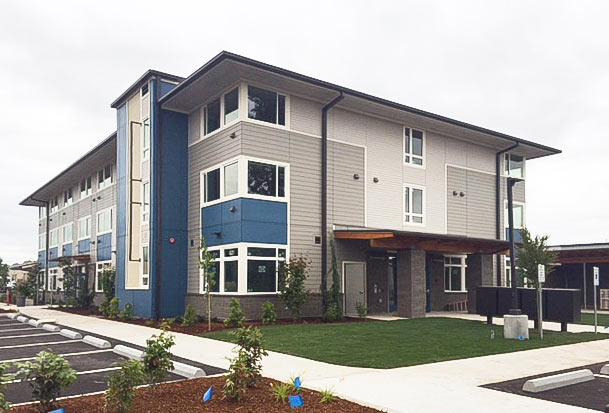Southwest Washington is one of the fastest growing housing markets in the country and facing soaring prices. We must start rethinking the way we have approached housing issues in the past and come up with new solutions that focus specifically on housing affordability and future economic growth.
In Vancouver, home prices are up 15% over last year in a community where housing supply is already limited. One element driving demand and creating upward pricing pressure is people moving out of bigger metropolitan areas like Portland and Seattle seeking comparatively more affordable housing. Another is workers from those and other areas relocating to southwest Washington because they can now work remotely.
Renters too are facing higher prices. Rents are up by 11.3% in Vancouver, while our state overall saw a 13.8% increase over the past year.
I have been hearing quite a bit about housing costs recently both from the constituents I represent in the 18th Legislative District and from my son who is looking to move out on his own. Rex has been looking for an apartment he can afford given the current dynamics. As a result, I am becoming reacquainted with details of the rental housing market. First and last month rent, security deposit, pet deposit and a competitive market because of onerus regulation by the government. Many landlords are choosing to sell a property back into single home ownership or use their property for short term rental (think VRBO & AirBNB).
In discussing rental options with my son, I have come to appreciate and carefully consider the cost of the security deposit. With rental costs already high, security deposits are a significant financial hurdle. A cash payment usually amounting to a month’s rent, on top of the first month’s rent, maybe $2,000, can be very hard to scrape together for a young professional moving here for a new job, or a recent graduate without family to help out. Landlords need these deposits in order to maintain their properties and should not be faulted for requiring them.
This past session, we updated the Residential Landlord-Tenant Act to provide another option allowing property owners to accept services that permit renters to pay a monthly fee in lieu of a traditional cash security deposit.
In addition to this new option, Washington has another regulated option that replaces the traditional cash security deposit with an affordable, insurance-based program like that offered by Rhino, which is offered at more than 35,000 Washington rental units, including by some of the biggest multifamily residential property companies. Their insurance has a fee around $5 per month for an apartment or house that rents for $1,000 per month. This insurance protects the property owner from the cost of damages or unpaid rent just like a traditional security deposit would, without the upfront cost to the renter.
Providing these options helps both renters and landlords find what works best for their situation. Unsurprisingly, while bigger residential companies have been accepting this kind of insurance in Washington for some years, smaller property owners are not as familiar with the option. With rising rent prices – and resulting increase in security deposits – wider adoption of products like Rhino’s seems almost inevitable.
Now that we are in a period of inflation across areas beyond housing, I’m also very concerned that we will see housing and rent prices keep going up while rental availability may become even more scarce. As home prices continue to rise with little inventory, houses that may have once been rented out by a smaller local landlord are being sold at or near the top of the market to those able to pay these high prices for single family homes. Each time this occurs it removes a unit of badly needed rental housing. Smaller local landlords can also capitalize on high property values by selling to REITs or other investors who have no local connections. These factors make it harder for renters to find housing they can afford and make buying a home even more competitive for families looking to settle down.
None of us could have predicted the increasing affordability crisis and housing shortage in our beautiful region but we need to find some new ideas to address this crisis now, because it will soon start to affect the wider economy in southwest Washington. Changes like rethinking security deposits can help make housing a little more affordable. Strong communities like Vancouver attract the businesses and workers that will power them, but we need to make sure families and workers can afford housing in our area, otherwise we may lose some of our appeal.
Ann Rivers serves in the Washington State Senate, representing the 18th legislative District. Prior to holding elected office, Rivers led AMR consulting, a political consulting firm. Contact her office at 360-786-7634.





